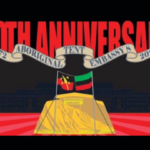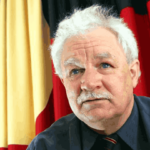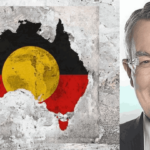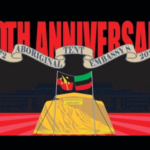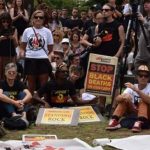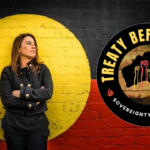The Constitution “Has Never Been Part of Our Law”: Aboriginal Tent Embassy’s Jessica Savage on the Voice
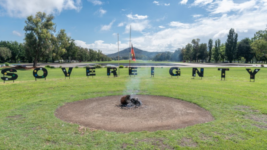
PM Anthony Albanese announced on 30 August that this nation will be holding a referendum on whether Aboriginal and Torres Strait Islander peoples should be recognised in the Australian Constitution, with an accompanying constitutionally enshrined Indigenous voice to parliament.
Many Indigenous people are concerned that recognition within the Constitution, will involve acquiescing to the unlawful invasion, the extinguishment of their sovereignty, and without proper truth-telling regarding dispossession and the crime of genocide, it will further serve to keep this history hidden.
Other concerns are that there have been multiple First Nations advisory bodies going back to the 1970s, and each has eventually been dissolved by government, while the proposed constitutional change does guarantee a Voice, it makes no stipulations about its actual formation.
And in a time when climate change is escalating, along with US militarisation, the sovereign peoples of this land are being told they can only advise on matters involving the neglect their oppressors serve them up, and not settler colonial matters, such as mining and war.
Foreigners in their own lands
Released just after Albanese’s speech, the Aboriginal Tent Embassy statement on the referendum provides that its members via the authority of the Embassy, “assert absolute sovereignty and territorial integrity over” their “ancestral lands” as well as their “right to self-determination”.
Since its establishment in 1972, the Embassy has run via “cultural protocols” that “are an active continuance of the oldest legal systems in the world”. And its stood firm on its demands: land rights, not lease, sovereignty, not assimilation and reparatory justice, not charity.
Three issues with the Referendum Council are listed: that it involved select decisionmakers that didn’t consider long-term implications, that the state is using this process to stifle decolonisation, and that the broader ways to establish self-determination were kept off the negotiating table.
“The Aboriginal Tent Embassy takes no position on this referendum with regards to ‘yes’ or ‘no’. The Commonwealth of Australia Constitution Act has never been part of our law,” the statement reads. And it also calls on others to join the struggle which will be ongoing regardless of the vote outcome.
All roads lead to the Embassy
Gumbaynggirr man Professor Gary Foley considers the Embassy “the most significant and successful Aboriginal political action of the entire 20th century”. And in having celebrated its 50th anniversary last year, the Aboriginal Tent Embassy is the longest running Indigenous land rights protest globally.
“The Aboriginal Tent Embassy regards the planned implementation of the Uluru Statement and the Declaration of Recognition as a threat to our peoples’ exercise of the right to self-determination under UN General Assembly Resolution 1514,” the Embassy’s statement further makes clear.
Sydney Criminal Lawyers spoke to Aboriginal Tent Embassy spokeswoman Jessica Savage about the widespread suspicions surrounding constitutional recognition, the priority goal of treatymaking and the Kalkadoon woman further explains the necessity in applying ancient protocols to such processes.
The Aboriginal Tent Embassy released a statement on 1 September outlining that it asserts absolute sovereignty and territorial integrity over ancestral lands and maintains its right to self-determination.
The Voice to Parliament is being framed as an advisory body that would advance the rights of First Nations peoples, yet, in asserting these rights, the Embassy is suggesting that the Albanese government’s proposed referendum is a direct threat to First Nations self-determination.
So, Jessica, why isn’t the Voice proposal something that the Tent Embassy supports? And why does it fall short of what sort of developments should be occurring?
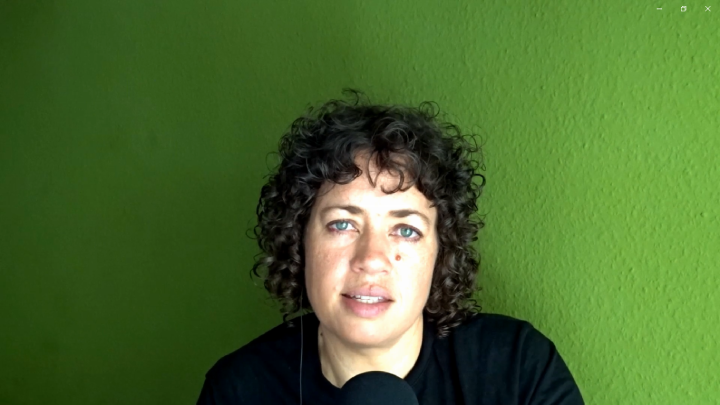
Our peoples, our laws and our cultures, we see it more as obligation, than seeing it as rights. And it is true that the Voice could be a steppingstone to advance civil rights for our people as participants in the wider Australian community.
That would lead to a general improvement in their welfare.
However, the rights that may lead from the Voice fall short, because they will not provide what we need in order to fulfil our own obligations to Country and each other.
We are not unrecognised Australians. We are who we are. We have our own political systems and identities. We need to have our territorial integrity respected.
We make no distinction between the material and the spiritual. Our sovereignty is holistic. We are sovereign people under an active and ongoing colonial occupation.
We want our sovereignty recognised truthfully. Constitutional recognition is a lie because it recognises us as being the First Australians and that’s simply not who we are.
The Aboriginal Tent Embassy has called out the Referendum Council process as ultimately a “colonially-funded” proposal that didn’t incorporate Aboriginal protocols in its inception.
And due to this, the Embassy will not be taking part in the referendum, as it merely involves British-based laws that the Embassy is not a party to.
So, can you elaborate further on the issues with how the government has approached the vote for the Voice? And what does its refusing to incorporate First Nations protocols into the negotiating process reveal about the way it envisions the Voice operating?
In 2017, the Referendum Council ran a First Nations constitutional convention at Uluru. There had been many complaints from our people over the process of that convention because it was not culturally-sound.
Anyone paying attention would know this. But there is no recourse. It is like a runaway train.
As for the negotiating process itself, there was no negotiation and there will be none because the result is predetermined.
This treaty that they’re talking about had its negotiations conclude long ago in 1900. We were still being massacred while this treaty was being negotiated.
The treaty they’re talking about is the Australian federation. There is no land or power left for us, as the states have already negotiated it for themselves. And they will keep taking, as they can unilaterally extinguish native title.
The constitutional amendments for the Voice were drafted in 2014, before the Kirribilli Statement and before the Uluru Convention.
At this time, Noel Pearson was working with constitutional conservatives and started pushing away from the symbolic race power amendments, in favour of his idea for the Voice.
And judging from the process so far, we expect the absolute minimum and nothing more.
As the Voice is a guaranteed right to make representations to parliament, and in taking that concept of making representations to parliament as the absolute minimum, it means standard citizens’ rights in a representative democracy.
So, the Voice is not worth lifting a finger for. We could shut up and be good little Blacks and still have the same outcome.
Professor Gary Foley has described the founding of the Aboriginal Tent Embassy as the 20th century’s most significant act of First Nations protest. The Embassy is the planet’s longest running political justice demonstration of its kind.
The Embassy has been recognised as a united First Nations representative body for over half a century now.
But it appears the Embassy was neither consulted on the Voice proposal and that the media has hardly paid any attention to its position on the referendum.
So, how does the Embassy consider this lack of consultation over such a prominent matter that involves the people it’s spent more than 50 years representing?
There was a special envoy for Indigenous affairs appointed in 2018, just after the Uluru Statement. The idea of sending in a special envoy to the Embassy to discuss the proposal is appropriate.
However, they appointed Tony Abbott as the envoy, knowing that our people would reject him, along with the idea of consultation with that. Abbott seemed to be doing his very best to stay in the headlines then, as he made one diplomatic blunder after another.
So, ultimately, our people will be blamed for rejecting consultation.
The lack of genuine good will for the involvement of the Embassy is disappointing but expected. It reflects the way our people are treated in this country.
Instead of dealing with our people openly and honestly, backdoors under government control are constructed to sideline us.
As for the media, that is something we at the Embassy need to work on. Engaging the media more and building up our own media capabilities, which is something currently on our agenda.
As the Tent Embassy is well aware, beneath the Voice proposal is the long-term agenda to have First Nations people recognised in the constitution. This means the Voice has to go to a nationwide vote to enter the founding document.
What sort of divisions is this debate causing amongst First Nations communities? And why is constitutional recognition a proposal that causes such suspicion?
Actually, constitutional recognition does not have to happen in the founding document at all.
Drawing upon all the powers held by the Commonwealth and First Nations, constitutional recognition can also happen through a treaty, in terms of small “c” constitutional recognition.
That is how it happened in most other colonial states, through treaties. But at least for now, Albanese has chosen to try big “c” constitutional recognition by modifying their founding document under section 128.
There are some very nasty divisions happening overall in respect to this referendum. Within our communities, opinion is diverse, but overall, we think our people have maintained a good level of decorum and respect between each other despite differences in opinion.
We have a lot on our plates, and we know we have to look after each other in face of the increased racism, trolling, ignorance and white-saviourism being stirred up.
Fighting with each other over “yes” or “no” is just not worth the effort, when our vote won’t make a difference. We are a family, and it will all be over in a few weeks anyway.
And as for constitutional recognition arousing suspicion, why would it not? Our people might not fully understand the technical details of the proposal, but they understand history.
The colonial system has repeatedly proven itself untrustworthy and unwilling to even make low-hanging fruit improvements for our wellbeing.
Our people know where the proposal originated, the main names behind it and who’s bankrolling it.
The overall messaging is shallow and leaves many unanswered questions. I can’t think of how it could be made more suspicious.
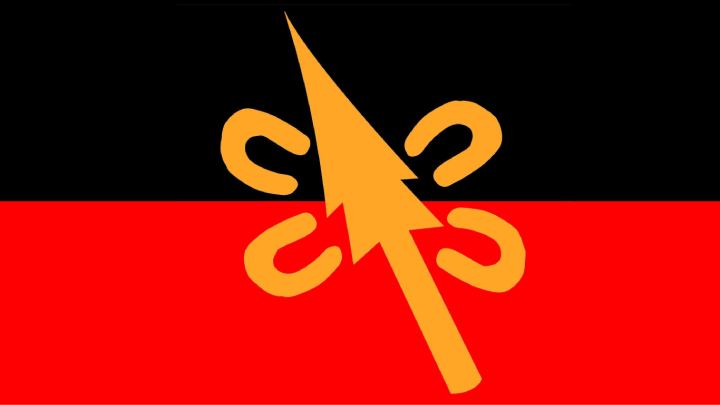
And lastly, again, the Embassy considers the planned implementation of the Uluru Statement as a direct threat to First Nations self-determination. The Embassy statement further asserts that you want to decolonise and come to an acceptable and fair solution between parties.
But the Embassy underscores that this process must utilise the ancient protocols of First Nations peoples.
So, Jessica, what would be an acceptable and fair solution to come to? And why must ancient protocols be a part of coming to that solution? What will happen if the ancient lore of the land is ignored?
An acceptable and fair solution would be one that puts the ancient lore of the land first, because our law is a fair law.
Australians might be afraid of our law because they don’t understand it. And this is because we are still being demonised and blamed – reversing the effect of the hate put on us is one of the big challenges that needs addressing.
The demonisation is part of why the referendum is probably going to fail.
Australians do have a place under our law. They will not be left out like we were left out of the colonial system. We want to come to an agreement.
But not an agreement underscored by the Uluru Statement because it is a trap.
Our protocols need to be the basis of any self-determination process because those ancient protocols are part of our law and an inseparable part of who we are. The consequence of ignoring our law is to forget who we are.
The consequences of ignoring our law in regard to the land and the community is the eventual downfall of both.
Our protocols make us strong and make us thrive. They protect us against the colony manipulating us through imposing their systems on us, like parliament reserving the right to decide how our own Voice would work, or having anthropologists or native title lawyers telling us who we are.
Our protocols will help us to be peaceful and respectful towards each other, so then we can begin healing the continent and all of its peoples.


